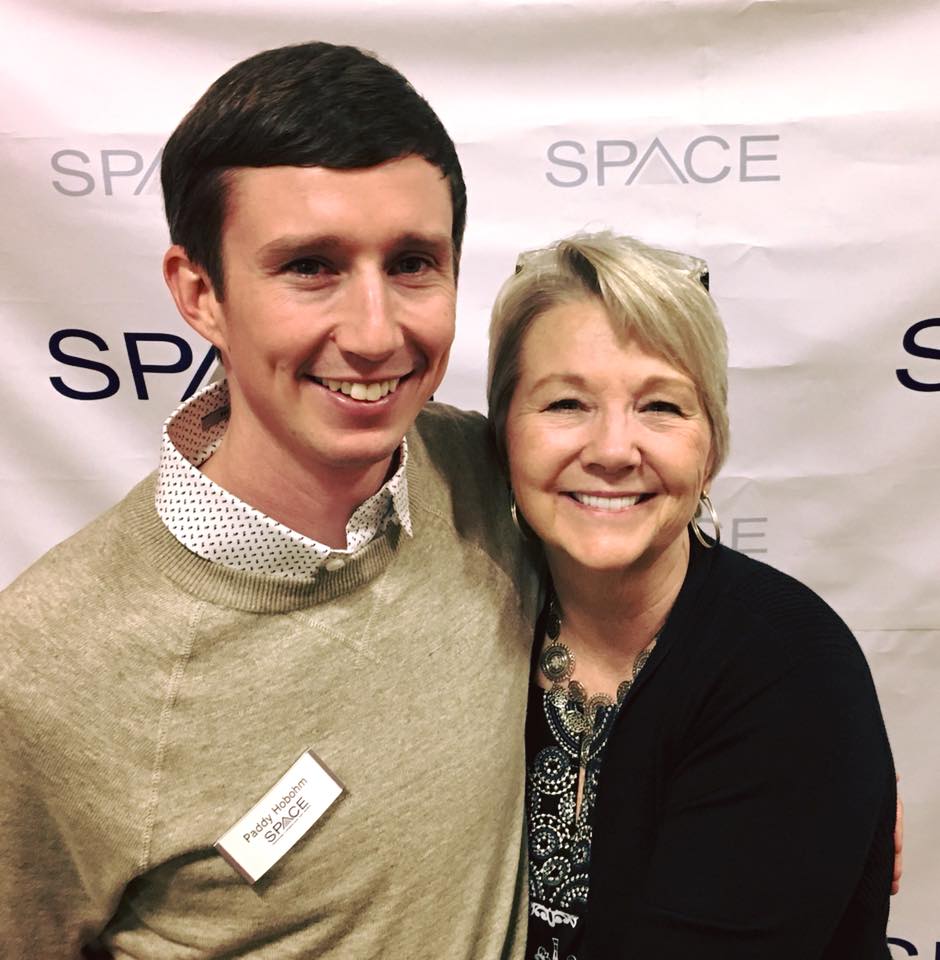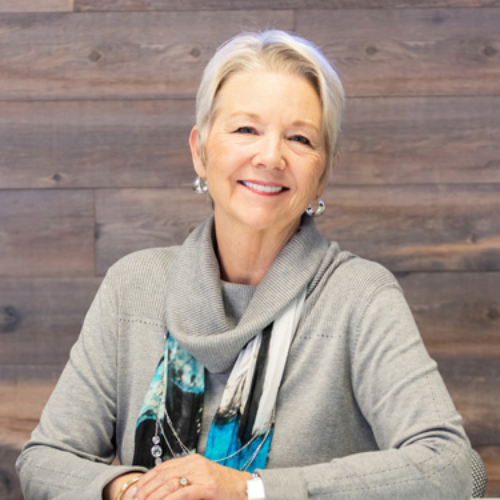A self-described “accidental entrepreneur,” Kathie Fuce-Hobohm began her career as a high school teacher, then fell in love with interior design when a school layoff prompted her to join an office equipment company. In late 1994 when her employer sold the dealership, Fuce-Hobohm decided to open her own workplace interiors firm in Midland, Michigan. Fast forward three decades: SPACE Inc. has grown to about two dozen employees, with staff members and clients in multiple states and annual revenue averaging between $10 and $15 million.

In recent years the company has added two unique services: SPACE anew™, which helps clients upcycle and reimagine existing furniture assets, and SPACE Facility Armor™, which provides pathogen testing and eco-friendly disinfecting solutions. Fuce-Hobohm has also been building a leadership team, with her son, Paddy Hobohm, becoming president in 2020. Yet Fuce-Hobohm was having ambivalent emotions about turning over the reins — until she joined the foundation’s Legacy Council program in October 2021.
A year-long program designed for entrepreneurs who are exiting their businesses or close to that point, Legacy Council helps participants focus on the next phase of their entrepreneurial journey. The program kicks off with an in-person retreat at Big Rock Valley (BRV), the foundation’s 2,000-acre learning campus in southwest Michigan, where participants begin to craft a legacy vision.
The kickoff retreat was a major turning point for Fuce-Hobohm. During a walk through the woods at BRV, she saw an exit sign with an arrow pointing straight ahead. The image sparked a correlation between decision-making and achieving large milestones.
“I realized that whenever I had made the decision to make a change, the new direction suddenly became easier,” she explains. With that in mind, Fuce-Hobohm crafted her legacy mission statement:
“In 2022 l am passing a successful business and labor of love to my son and future generations. I will embrace his vision, celebrate his success and if he asks, provide guidance. My support for him is 100% and unwavering with the certainty that he will make the business better than I could have possibly imagined or dared to dream.”
When she returned from the retreat Fuce-Hobohm showed the statement to her son, and he jokingly asked: “Can you put that on our letterhead and laminate it?” (She did.)
Looking back, Fuce-Hobohm explains her struggle to let go as being two-fold:
- 1. Her strong identity as an entrepreneur. “Being a business owner is really fulfilling,” she says. “I would get up on Monday morning and the workweek was my vacation. It was an avocation for me, not a job.”
- 2. Worrying about the business entity. “You have to be in the mindset of ‘Let go and let God,’ ” she says. “You have to accept the worst thing that can possibly happen, that the company could go out of business. It’s not that I didn’t trust the new leadership team, it’s just the consequences are so big — at least they were for me at the time.”
After the retreat Legacy Council participants continue progressing toward their goals by meeting as a group in quarterly roundtables and on an individual basis with Colleen Killen-Roberts, the foundation’s vice president of entrepreneurship. Fuce-Hobohm credits these sessions for helping her reprioritize her time and carve a new role. “The biggest thing about legacy is learning how to get out of the way…finding balance between being involved and being too helpful,” she says.
Rather than being immersed in daily operations, Fuce-Hobohm now functions as a mentor-coach to SPACE’s sales and leadership teams. “My job description is to get the team ready so they can run operations – and to stay out of the way,” she says. “I’m still contributing, but in a different way.”
Instead of 80-hour work weeks, Fuce-Hobohm now leaves SPACE early on some afternoons to spend time with her grandchildren, taking them to dance or athletic lessons and then to dinner. She takes Fridays off and has joined several community boards, such as the Women Impacting Public Policy, which helps women business owners work with the government.

“I’ve had to tiptoe into retirement, but I’m more content than I’ve been in my entire career. There’s a valuable, relevant position for me doing something I love to do,” Fuce-Hobohm says.
Another benefit of the program was meeting a group of business owners who were going through similar challenges, she adds: “Legacy Council gave me the chance to meet some people I really like and respect. These friendships have been an unexpected consequence of the program.”
“At the end of the day, creating a legacy is about creating the life you want to live after your business,” Fuce-Hobohm says. “And I’m doing it now.”
